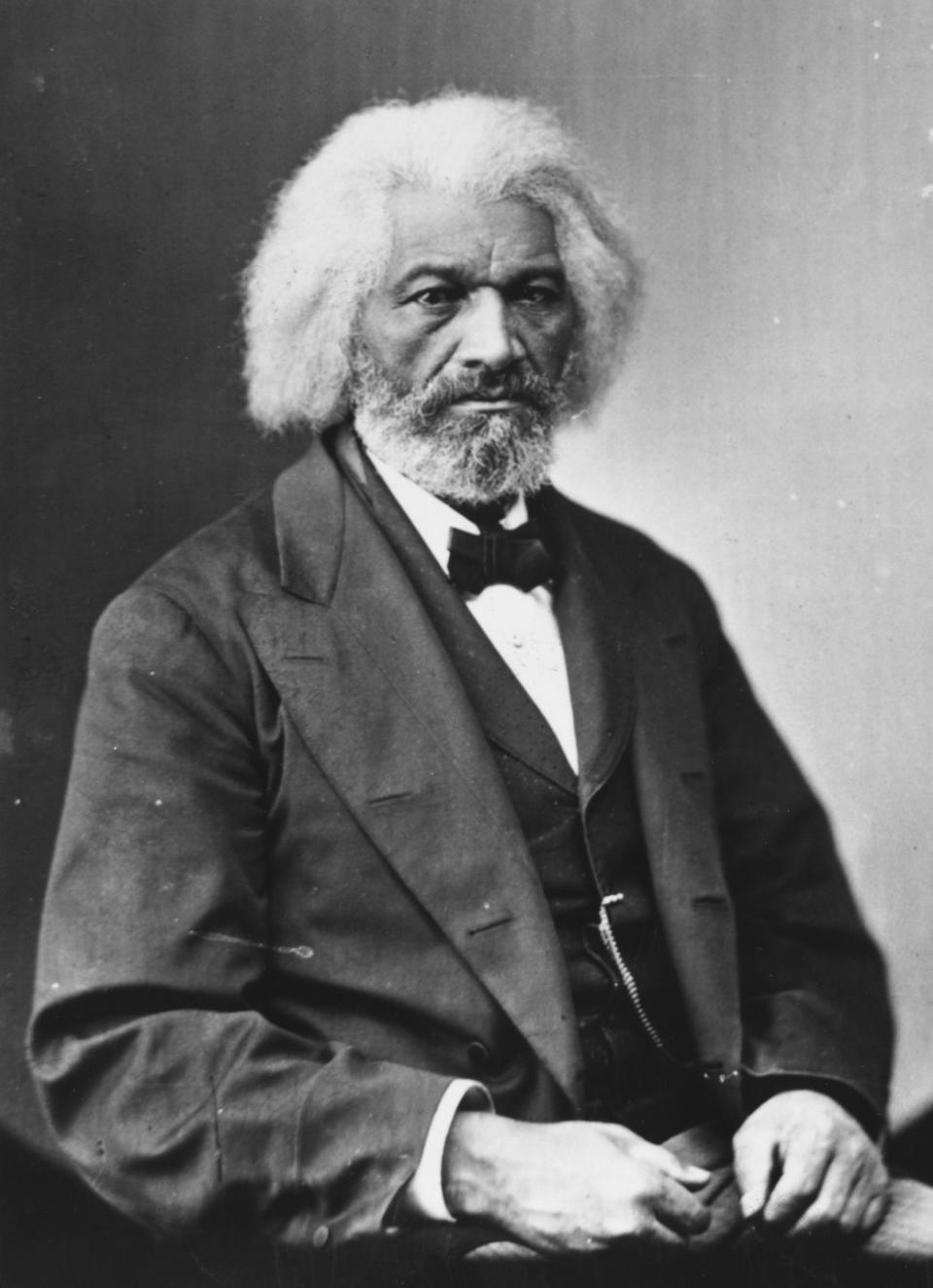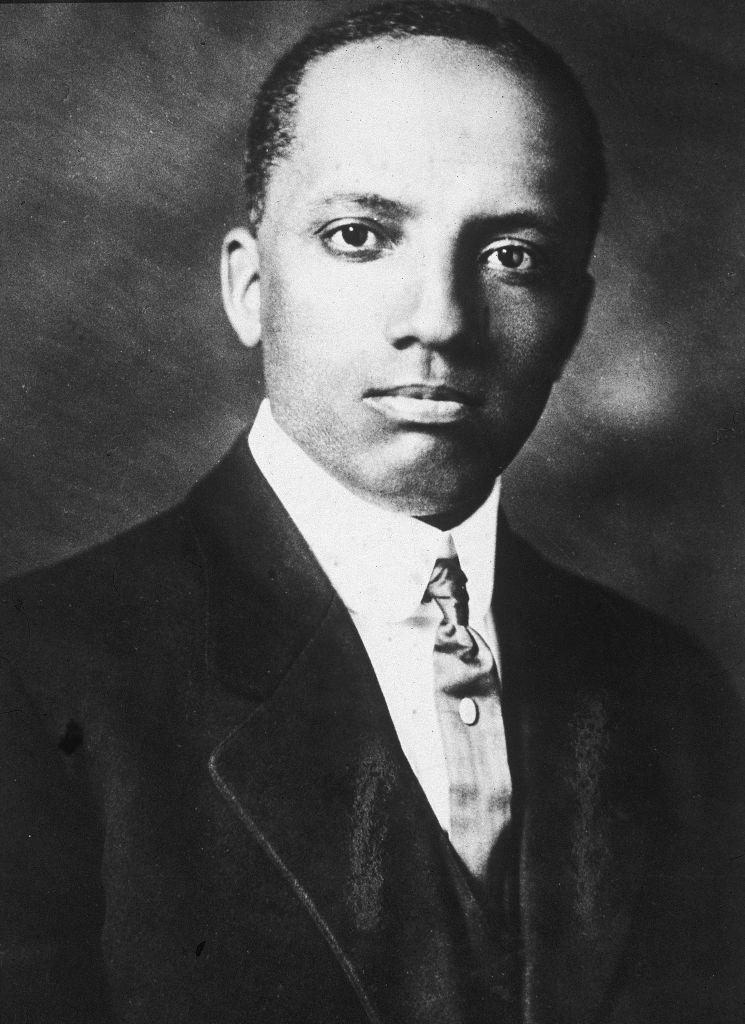Here's Why Black History Month Falls in February

- Oops!Something went wrong.Please try again later.
"Hearst Magazines and Yahoo may earn commission or revenue on some items through these links."
It’s easy for many African Americans to take Black History Month for granted. Yet, Black History Month’s presence is as constant and steady as choir rocks and handclaps in a Sunday morning service.
Tracing its roots is a reminder that Black History Month is a fairly recent celebration, considering the span of U.S. history, and that it’s just as critical today as it was when it was first established decades ago. The month-long observance is a critical annual acknowledgement, not only of Black history, but of American history. Similarly it provides a necessary education— not only for Black people, but for everyone.
Sometimes, it’s necessary to shake things up to make the familiar feel new again. So, we uncovered some lesser-known facts about the origins and celebration of Black History Month, including why we celebrate it in February. We hope you’ll learn something new and celebrate with a renewed appreciation.
Why is Black History Month in February?
A longstanding rumor in some of the more skeptical pockets of the Black community is that February was selected as the month to honor Black history because it provides the least number days — a mere 28 — to celebrate Black achievement.
Historian Daryl Scott, Professor of U.S. History at Howard University, refutes this rumor, saying that “Black people gave us Black history month.” Specifically he adds, "It was Woodson,” as in Dr. Carter G. Woodson, who established Negro History Week in 1926 to celebrate the contributions of African Americans to American life and history.
“Woodson was cleaning up bad history,” says Scott, who served as President of the Association for the Study of African American Life and History, Inc. (ASALH), the organization that Woodson founded in 1915. This “bad history” left out many of the outstanding contributions of Black Americans to U.S. History, says writer and historian Ronda Racha Penrice, author of Black American History For Dummies.
Penrice says that the grassroots movement that led to the creation of Black History Month was critical because: “There’s a perception that we [African Americans] didn’t contribute much, but you’ll find our contributions all over the place!”
African American contributions were so numerous Woodson began the tradition of giving each Black History Month a theme to educate the public on the myriad of ways Black people contributed to American daily life, including education, medicine, and business.
This year’s theme is “Black Resistance.”
Most of us think of the grainy images of marches and sit-ins we see during Black History Month or American studies as examples of “Black Resistance.” However, it includes the historic and ongoing means, from faith traditions to rap music, that African Americans have resisted systemic oppression such as lynchings, segregation and police killings. As ASLAH says, it’s about advocating for a “dignified, self-determined life in a just democratic society in the United States and beyond.”

Negro History Week took place during the second week of February to commemorate the births of abolitionist Frederick Douglass, who claimed February 14 as his birthday, and President Abraham Lincoln, who was born on February 12.
Various Black communities throughout the U.S. already hosted Douglass Day and Lincoln Day celebrations to honor their work. “So when Woods comes along,” says Scott, “He takes those two unofficial celebration days and he says, ‘We'll celebrate the week.’”
Scott says that Woodson essentially invited the Black community to honor an entire group of people in lieu of the contributions of solely two individuals.
However, some African Americans say Black History Month should be moved from February to June to coincide with other African American community events such as Juneteenth, Black Music Month, family reunions, and cookouts.
Like Black History Month, Juneteenth is another important African American celebration. President Joe Biden even recognized Juneteenth last year as a federal holiday.
Celebrated every year on June 19th, Juneteenth marks the day in 1865 when Union soldiers told the last of enslaved African Americans, found in Galveston, TX, that they were “free.” President Lincoln granted African Americans “free” legal status two years before in the Emancipation Proclamation. Many African Americans consider Juneteenth the “true” day of freedom in Black history, and they celebrate with food, family and the Juneteenth flag.
Who was Dr. Carter G. Woodson?
Carter Godwin Woodson (1875-1950) was born in New Canton, Virginia, to parents Anne Eliza (Riddle) and James Henry Woodson, both of whom had been enslaved and were illiterate. He was a staunch believer that education could uplift individuals and the Black community as a collective. In 1912 he received his Ph.D. from Harvard University, making him the only person born to enslaved parents to ever earn a Ph.D. in history from any U.S. institution.
Three years later, he founded the Association for the Study of Negro Life and History, now called the Association for the Study of African American Life and History (ASALH), to provide Americans with information about how Black Americans had contributed to American history and culture.

Woodson’s myriad contributions, which included penning countless books, journals and a publishing company, earned him the title “The Father of Black History.”
Penrice says that Woodson established Negro History Week because he “fundamentally believed that the quickest way to dehumanize a people was to tell them that they didn’t have a history.” Woodson spent his career working to ensure that Black Americans were portrayed in their full humanity and greatness. He was one of the “prophets looking backwards,” says Penrice.
How did Negro History Week evolve into Black History Month?
As Negro History Week caught on “like wildfire,” according to Scott, the ASALH grew as well, establishing new branches throughout the country, all of which celebrated Negro History Week. Scott adds that Woodson and the ASALH provided each branch with educational materials about Black history to share with its members.
Woodson “wanted the school children to make presentations during Negro History Week based upon what the teachers had been teaching them all year up until that point,” he adds. “So it was never just a one-week affair in his mind.”
As Negro History Week grew in popularity, eventually various Black communities pushed for a month-long celebration. This push gained more momentum during the 1960s when the Black Power Movement and school integration efforts were gaining momentum, says Scott. In 1976 the ASALH expanded the week-long celebration into a month-long celebration, and President Gerald R. Ford acknowledged it with a presidential proclamation. Since then, every U.S. President has followed suit.
President Obama widened the public’s imagination of Black History Month in 2016 so that it was not only limited to recognizing the achievements of famous people or perceiving Black history as separate from American history.
“It’s about the lived, shared experience of all African Americans, high and low, famous and obscure, and how those experiences have shaped and challenged and ultimately strengthened America,” President Obama said in his 2016 remarks. “It’s about taking an unvarnished look at the past so we can create a better future.”
Although Woodson never lived to see Obama elected as the nation’s first Black president in 2008 or Negro History Week transition into Black History Month and witness its impact in the U.S., Canada and beyond, his dream is alive and well. “He believed there should be Black history in schools, Black history courses in college,” says Scott, “But he would always say that you can't separate Black history from history of America, the history of the world.”
How to celebrate Black History Month in February and all year long:
There are many ways to celebrate Black History Month this month and all year long. Here are several ways:
Purchase, read and share books by African Americans. It's simple, yet important — education was the impetus of the month-long celebration. Books like Penrice’s Black American History For Dummies and An Indigenous Peoples' History of the United States are two great resources to expand your understanding of U.S. History. While you're at it, support a Black-owned bookstore!
Support Black-owned businesses. According to the Brookings Institute of African American businesses, there were 3.12 million Black-owned businesses in the United States, generating $206 billion in annual revenue and supporting 3.56 million jobs in the nation. If Black-owned businesses are hard to come by in your community, shop online.
Listen to an African American podcast. After George Floyd's tragic death, podcasts gained popularity in 2020, including the explosion of African American podcasts. Podcasts are a great way to learn and experience life from new perspectives. Codeswitch, The Stoop, and Seeing White are a great places to start.
Give to associations that advance Black history and civil rights. Two leading organizations are the ASALH and the NAACP.
As you celebrate, let's hope you reach the same conclusion that Penrice did when reflecting on this noteworthy month: “There’s definitely a lot of tragedy and pain, but there’s a lot of love and beauty as well. I sincerely believe that’s what Carter G. Woodson has given us.”
You Might Also Like

